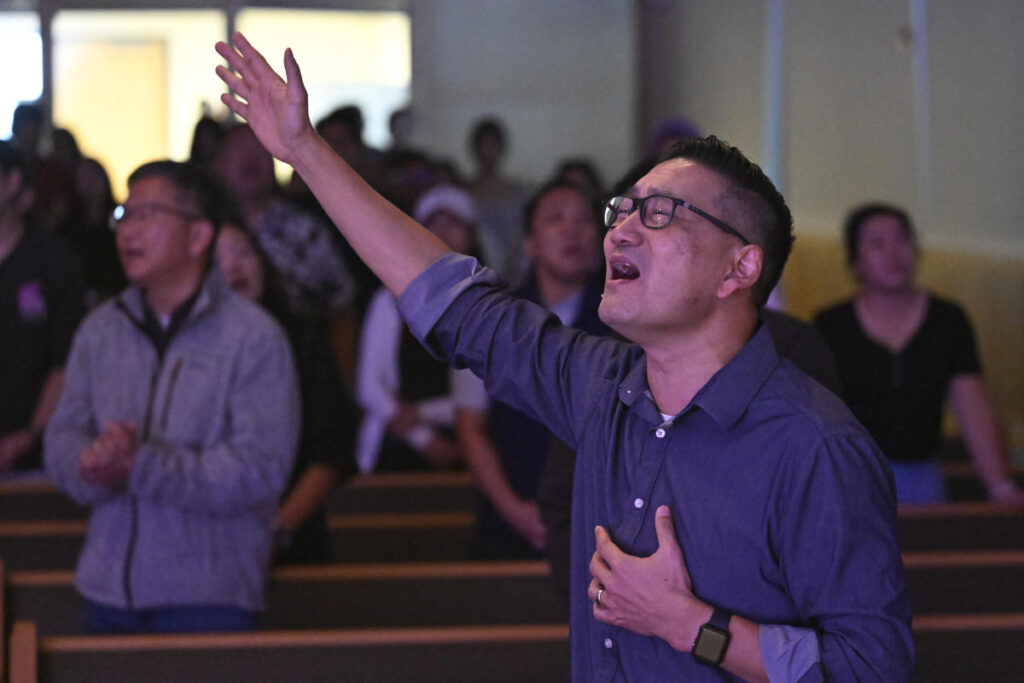The Rev. Wayne Lee leads a diverse English-speaking evangelical church in Philadelphia’s Chinatown, comprising second- and third-generation Chinese Americans, while also being connected to two other congregations that primarily speak Mandarin and Cantonese. With about 120 members in his church and a total of 500 in the immigrant congregations, Lee acknowledges the varying political affiliations within his community. While many of the older Mandarin and Cantonese members support former President Donald Trump, the younger members lean left. Lee emphasizes the diversity within the church, making it difficult to generalize about the congregation’s political leanings. This situation mirrors the wider Asian American Christian demographic, which is increasingly seeking a distinct identity separate from white evangelicalism, reflecting evolving views on social and political issues.
The changing dynamics among Asian American evangelicals indicate a shift in political loyalty, particularly among younger generations. This group, while remaining theologically conservative on issues such as abortion and LGBTQ+ rights, exhibits more nuanced perspectives on topics like immigration and racial justice. Experts note that younger Asian American Christians are beginning to distance themselves from their parents’ unwavering support for the Republican Party. This demographic is critical in battleground states, representing a potentially influential voting bloc for upcoming elections. Despite their pivotal role, experts find that political engagement within Asian American communities remains limited, highlighting the challenge of mobilizing this population effectively.
Data shows that Asian Americans, especially Christians, comprise the largest religious voting bloc among this demographic. While about a third of Asian American adults identify as Christian, only a small fraction identify as evangelical. Many shy away from the label due to its association with a specific political identity due to the rise of the religious right and its alignment with conservative values. Nevertheless, Asian American Christians maintain their evangelical roots, often linking their faith to the historical influence of U.S. missionaries in their countries of origin. This identity is shaped by cultural, historical, and theological factors, complicating their place within the larger evangelical community.
Asian American evangelical leaders, such as Pastor Owen Lee from Virginia, illustrate the struggle with their self-identification in a polarized political environment. Following Trump’s rise, many members have felt alienated from traditional white evangelical spaces while still wanting to retain their evangelical beliefs. Increasingly aware of the importance of political character alongside issues like abortion, they express concern for societal governance as they prepare for upcoming elections. This shift reveals a growing desire among Asian American Christians to take their civic responsibilities more seriously and to engage actively in broader political discussions.
Pastor Raymond Chang, among other leaders, acknowledges the political challenges faced by Asian American Christians as they navigate their identities and experiences. Given their historical context, many members approach civic engagement from a subdued position, often voting but not participating in broader discussions or activism. Concurrently, former seminary professor James Cho reflects on the transformation taking place within Asian American evangelical congregations. He highlights the generational divide, noting a growing disconnection between younger Asian American evangelicals and their white counterparts. This evolving political landscape is leading many to reconsider their party loyalty, especially in light of issues such as immigration and discrimination that resonate deeply with their experiences.
The evolving role of Asian American churches underscores the intersection of cultural heritage and religious practices. With historical influences from immigrant experiences, the integration of ethnic identity into faith has shaped the perspectives within these congregations. As leaders like Jerry Park note, understanding the combination of cultural and religious influences is crucial for navigating political outreach toward these communities. Political parties seeking to engage with Asian American Christians must recognize and appreciate the diversity within this group. By acknowledging their varied social and political concerns, they can better connect with this critical voting bloc to foster genuine dialogue and collaboration moving forward.

